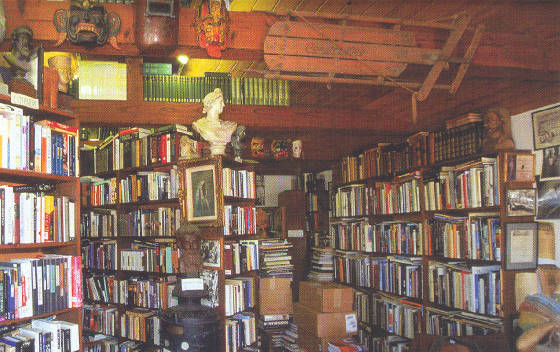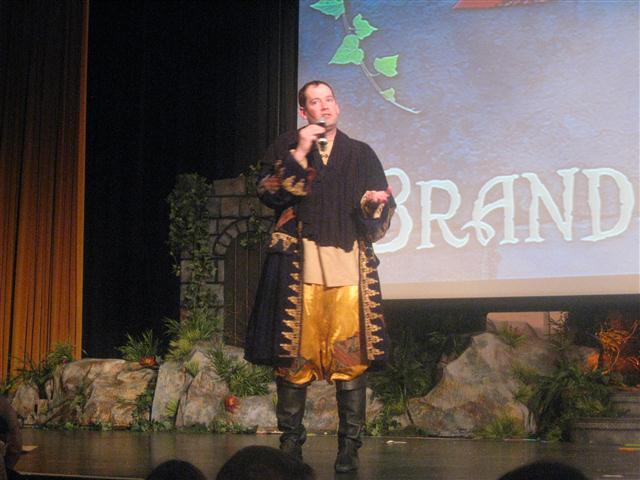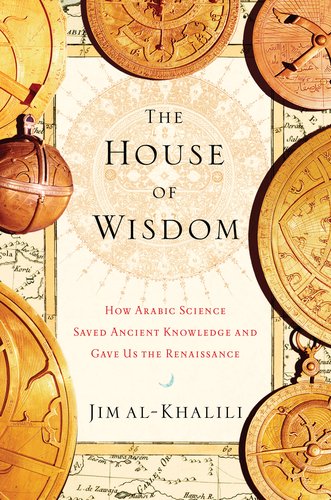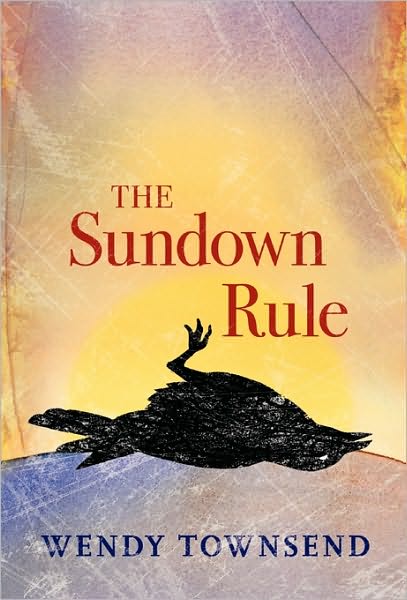 The amended Google settlement was rejected yesterday by U.S. District Court Judge Denny Chin. In the proposed settlement of a 2005 lawsuit brought by the Authors Guild and Association of American Publishers against Google for violating copyright laws, the company had agreed "to pay $125 million to people whose copyrighted books have been scanned, and to locate and share revenue with the authors who have yet to come forward," Reuters wrote.
The amended Google settlement was rejected yesterday by U.S. District Court Judge Denny Chin. In the proposed settlement of a 2005 lawsuit brought by the Authors Guild and Association of American Publishers against Google for violating copyright laws, the company had agreed "to pay $125 million to people whose copyrighted books have been scanned, and to locate and share revenue with the authors who have yet to come forward," Reuters wrote.
In his decision, Chin wrote that the Amended Settlement Agreement "would give Google a significant advantage over competitors, rewarding it for engaging in wholesale copying of copyrighted works without permission, while releasing claims well beyond those presented in the case."
He concluded that the settlement "is not fair, and reasonable. As the United States and other objectors have noted, many of the concerns raised in the objections would be ameliorated if the ASA were converted from an 'opt-out' settlement to an 'opt-in' settlement.... I urge the parties to consider revising the ASA accordingly."
Because Chin rejected the settlement "without prejudice," a revised pact can be submitted, Reuters noted, and Authors Guild president Scott Turow said the organization hopes to talk with Google and the AAP to "arrive at a settlement within the court's parameters that makes sense for all parties."
In a statement, Google's managing counsel Hillary Ware said, "This is clearly disappointing, but we'll review the court's decision and consider our options. Regardless of the outcome, we'll continue to work to make more of the world's books discoverable online through Google Books and Google eBooks."
"Opt-in doesn't look all that different from ordinary licensing deals that publishers do all the time," James Grimmelmann, a professor at New York Law School, told the New York Times. "That's why this has been such a big deal--the settlement could have meant orphan books being made available again. This is basically going back to status quo, and orphan books won't be available."
John Sargent, Macmillan's CEO, said in a statement that publishers are prepared to enter into a more narrow settlement using Chin's guidelines "to take advantage of its groundbreaking opportunities. We hope the other parties will do so as well.... For more than a decade, publishers have been making substantial investments to enable and enhance online access to content in accordance with copyright laws and we will continue to do so regardless of the outcome of the litigation. We believe that the provisions of the settlement would give these efforts a tremendous boost and would open a world of opportunities for readers, researchers, authors, libraries and publishers for decades to come.”
---
Amazon has launched its Appstore for Android, which includes Test Drive, a feature that enables customers to test apps, directly from their browser, on a simulated Android phone. "Test Drive lets customers truly experience an app before they commit to buying," said Paul Ryder, v-p of electronics for Amazon. "Our customers have told us that the sheer number of apps available can make it hard to find apps that are high quality and relevant to them."
One company that is less than pleased by the launch is Apple, which has sued Amazon, claiming unfair use of its App Store trademark. Forbes reported that the lawsuit, filed late last week in California, alleges Amazon "is improperly using the name for what it calls the Amazon Appstore Developer Portal online. Amazon appears also to plan to use the name for a mobile download service."
BBC News noted that Apple is seeking to trademark the App Store name in the U.S., but a decision "is still being considered by a trademark trial and appeals board."
---
 La Jolla, Calif., residents "don't have to worry about their local independent bookstores going anywhere," the Village News reported, noting that "the unique business models and personalized customer experiences of Warwick's and D.G. Wills Books provide stability during a time of economic recession."
La Jolla, Calif., residents "don't have to worry about their local independent bookstores going anywhere," the Village News reported, noting that "the unique business models and personalized customer experiences of Warwick's and D.G. Wills Books provide stability during a time of economic recession."
"We're very passionate about the community and are very involved in several community fundraisers and endeavors," said Adrian Newell, Warwick's book buyer. "In this economic environment, big superstores don't work. We’re a much smaller operation, which allows us to be nimble and react quickly to change. I'm sure some of the Borders stores are stuck in leases for 30,000- to 40,000-square-foot spaces. For us, everything is done right here in the store. In this case, small is beautiful."
Dennis Wills, owner of D.G. Wills Books, added, "We are blessed to share with our good friends at Warwick's up the street. We are on the phone with each other daily, checking on the availability of titles for customers. If there is an important new book on almost any subject, Warwick's is likely to have it if we don't. Conversely, if someone needs one or five different translations of Homer, Plato, Cicero or Dante, or a particular edition of a Shakespeare play, we may be more likely to have that in our 'emergency Shakespeare section' in the warehouse."
---
The "outlook is a lot more bright for smaller book retailers" in Kansas City, Mo., as well. Vivien Jennings, co-owner of Rainy Day Books, told Fox4KC: "We focus on books. We do books well, we read, we're able to connect with customers with the author experience as well.... Bigger isn't better. Better is better. "
---
.jpg) Obituary note: A memorial service will be held April 9 for the late Ralph Charles Kohn, manager of Kepler's bookstore, Menlo Park, Calif., from the late 1960s until 1997. He died last month at the age of 93. The Almanac noted that Kohn "became close to the Kepler family and when Roy's son, Clark, became the owner, the two of them became close, the family said. He and his wife Irene became the keepers of Kepler's traditions, and each summer, hosted a taco party at their home so that former employees of the store could catch up with the extended family of Kepler's people."
Obituary note: A memorial service will be held April 9 for the late Ralph Charles Kohn, manager of Kepler's bookstore, Menlo Park, Calif., from the late 1960s until 1997. He died last month at the age of 93. The Almanac noted that Kohn "became close to the Kepler family and when Roy's son, Clark, became the owner, the two of them became close, the family said. He and his wife Irene became the keepers of Kepler's traditions, and each summer, hosted a taco party at their home so that former employees of the store could catch up with the extended family of Kepler's people."
---
Everything old is new again: Rocket Bomber found an article from the January 7, 1888, edition of Publishers Weekly expressing concern over troubling developments in the book business, where a modern retail option was threatening local bookstores. Mail-order operations, including "Library Associations," were "doing business from catalogue orders, and therefore doing it at little risk and without the necessary margin for stock and store expenses."
The book trade had "departed more and more from what we may call the local method, and become more and more centralized" partly because it desired to reach areas that weren't serviced by bookstores, and "to take advantage of mail facilities to save himself the profit formerly allowed the bookseller. Alongside of this, in the course of the competition, the discount system developed until the nominal or advertised price of books did not correspond to the practical selling price. The result of this has been to decrease not only the number of book-stores in proportion to the community, but probably the actual number of book-stores throughout the country, and the publisher more and more relies upon mail orders as a centralized means of pushing his books."
In a letter to the magazine, bookseller A. Setliff said that "you, the publishers, and the trade must unite in an effort to bring about such reforms as will save what there is left and build up a new generation of booksellers" and called for "an organization of publishers strictly, and an organization of booksellers strictly, each organization to have an executive committee to act conjointly."
---
"10 famous authors who went Hollywood" were showcased by Flavorwire, which noted, "Since their inception, the moving pictures have offered scribes the opportunity for comparatively easy money--a few weeks' work dashing off a screenplay or a punch-up job to subsidize the year it's going to take to write The Great American Novel."
Flavorwire also featured "books that inspired fashion designers," along with a quote from Virginia Woolf's Orlando: "Vain trifles as they seem, clothes have, they say, more important offices than merely to keep us warm."
---
In a variation on the traditional desert island books theme, sci-fi and fantasy blog Grasping for the Wind asked readers: "If you had to leave your house in a hurry, and you could only grab five volumes off your shelf, which five would they be and why?"
---
Book trailer of the day: Sex, Murder, and the Meaning of Life by Douglas Kenrick (Basic Books).








 The amended Google settlement was rejected yesterday by U.S. District Court Judge Denny Chin. In the proposed settlement of a 2005 lawsuit brought by the Authors Guild and Association of American Publishers against Google for violating copyright laws, the company had agreed "to pay $125 million to people whose copyrighted books have been scanned, and to locate and share revenue with the authors who have yet to come forward,"
The amended Google settlement was rejected yesterday by U.S. District Court Judge Denny Chin. In the proposed settlement of a 2005 lawsuit brought by the Authors Guild and Association of American Publishers against Google for violating copyright laws, the company had agreed "to pay $125 million to people whose copyrighted books have been scanned, and to locate and share revenue with the authors who have yet to come forward,"  La Jolla, Calif., residents "don't have to worry about their local independent bookstores going anywhere," the
La Jolla, Calif., residents "don't have to worry about their local independent bookstores going anywhere," the .jpg) Obituary note: A memorial service will be held April 9 for the late Ralph Charles Kohn, manager of Kepler's bookstore, Menlo Park, Calif., from the late 1960s until 1997. He died last month at the age of 93. The
Obituary note: A memorial service will be held April 9 for the late Ralph Charles Kohn, manager of Kepler's bookstore, Menlo Park, Calif., from the late 1960s until 1997. He died last month at the age of 93. The 
 For its 40th anniversary, Masterpiece has collected more than 25 book-to-film discussion guides from its Book & Film Club archives for such works as Jane Eyre, The Diary of Anne Frank and Dr. Zhivago. The guides are sorted by title or author and provide discussion questions, author biographies, background essays, interviews, activities--and even recipes. They can be found at
For its 40th anniversary, Masterpiece has collected more than 25 book-to-film discussion guides from its Book & Film Club archives for such works as Jane Eyre, The Diary of Anne Frank and Dr. Zhivago. The guides are sorted by title or author and provide discussion questions, author biographies, background essays, interviews, activities--and even recipes. They can be found at 
 Your top five authors:
Your top five authors:  Wendy Townsend's (Lizard Love) heartfelt story about a girl who feels most at home in nature will make even hardcore city dwellers wake up to the wonders of the natural world. As 12-year-old Louise Eliot describes daily life with her father near Michigan's Marl Lake, she leads us into the realm of experience with all five senses: the smell of coffee grounds that she leaves in the compost pile at the edge of the woods; the sounds of the scout crow when it discovers the cornbread the girl has set aside for the birds; the feel of the cool spring morning before Lews, as her father calls her, adds fuel to the woodstove that heats their cabin. Louise loves her life so much that she can't bear to think of going away to college one day. When her constant companion, Cash, her cat as "black as the crows" (but "dark chocolate" in the sunlight), brings Louise a dead mouse, she simply adds it to the compost pile. She accepts the ways of nature without judgment as she aids a heron whose leg has been injured by a snapping turtle. Louise takes in so many wild animals that her park ranger father had to implement "the sundown rule": Louise must set free every animal where she'd found him by sundown. Louise's world seems perfectly in balance.
Wendy Townsend's (Lizard Love) heartfelt story about a girl who feels most at home in nature will make even hardcore city dwellers wake up to the wonders of the natural world. As 12-year-old Louise Eliot describes daily life with her father near Michigan's Marl Lake, she leads us into the realm of experience with all five senses: the smell of coffee grounds that she leaves in the compost pile at the edge of the woods; the sounds of the scout crow when it discovers the cornbread the girl has set aside for the birds; the feel of the cool spring morning before Lews, as her father calls her, adds fuel to the woodstove that heats their cabin. Louise loves her life so much that she can't bear to think of going away to college one day. When her constant companion, Cash, her cat as "black as the crows" (but "dark chocolate" in the sunlight), brings Louise a dead mouse, she simply adds it to the compost pile. She accepts the ways of nature without judgment as she aids a heron whose leg has been injured by a snapping turtle. Louise takes in so many wild animals that her park ranger father had to implement "the sundown rule": Louise must set free every animal where she'd found him by sundown. Louise's world seems perfectly in balance.